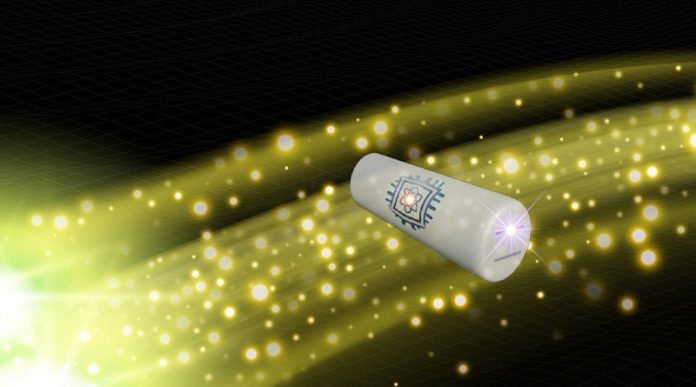
A groundbreaking new study led by Professor Igor Pikovski from Stevens Institute of Technology has proposed a method to detect one of the most elusive particles in the universe—gravitons.
These tiny particles are believed to be the quantum building blocks of gravity, much like how photons are the building blocks of light.
Until now, physicists thought it was impossible to detect gravitons, but this new research suggests that it might soon be within our reach thanks to advancements in quantum technology.
Gravity is a force we all experience—things fall, planets orbit, and stars shine. Over a century ago, Albert Einstein transformed our understanding of gravity, showing that it is the result of changes in space and time.
While we’ve learned a lot about gravity since then, there’s still a missing piece: we have only observed gravity in its classical form, not in its quantum form.
In the quantum world, forces are carried by tiny particles, and for gravity, these particles are called gravitons.
Gravitons are thought to be the smallest units of gravity, just as atoms are the smallest units of matter.
Scientists believe that the gravitational waves detected by instruments like LIGO (Laser Interferometer Gravitational-Wave Observatory) are made up of countless gravitons.
However, no one has ever detected a single graviton—until now, it was thought to be impossible.
Pikovski and his team, including graduate students Germain Tobar and Thomas Beitel, along with postdoctoral researcher Sreenath Manikandan, believe they have found a way to detect single gravitons.
Their research was recently published in the journal Nature Communications.
The team’s idea revolves around using an acoustic resonator—a heavy cylindrical device that can detect tiny changes in energy.
By combining this resonator with advanced quantum sensing technology, they propose a method to spot the tiny energy changes that would occur when a graviton interacts with the device.
Pikovski explains that their approach is similar to the photoelectric effect, which led Einstein to the quantum theory of light. Just as light waves can be broken down into individual photons, gravitational waves could be broken down into individual gravitons.
By cooling the resonator to its lowest energy state and carefully monitoring any changes, the researchers believe they can detect the small energy jumps that signify the absorption of a graviton. They call this process the “gravito-phononic effect.”
One major challenge is that the technology required to detect these quantum jumps doesn’t fully exist yet.
While quantum jumps have been observed in small-scale materials, they haven’t been observed in the larger masses needed for this experiment. However, the researchers are optimistic that with rapid advancements in quantum technology, this will soon be possible.
The team also plans to use data from LIGO, which is excellent at detecting gravitational waves, to help isolate single gravitons.
Although LIGO itself can’t detect individual gravitons, its data could be cross-referenced with the resonator’s readings to confirm a graviton’s presence.
This new method of detecting gravitons could be a significant step forward in understanding gravity at the quantum level. Pikovski’s team believes that once the necessary technology is developed, it will be possible to capture single gravitons.
This could open up a whole new field of research, bringing us closer to solving the mystery of quantum gravity—a puzzle that has eluded scientists for decades.
“We’re confident that this experiment will work,” says Beitel. “Now that we know it’s possible to detect gravitons, it’s an exciting time to be developing the technology to make it happen.”



